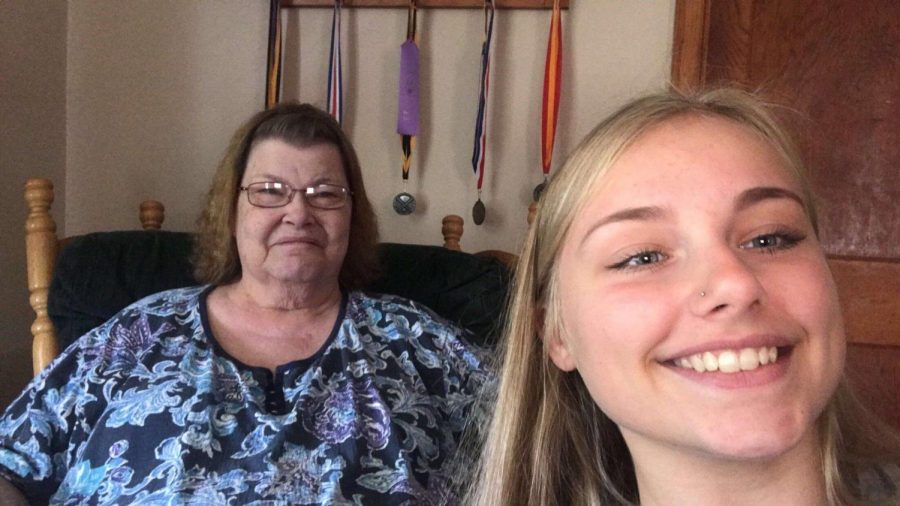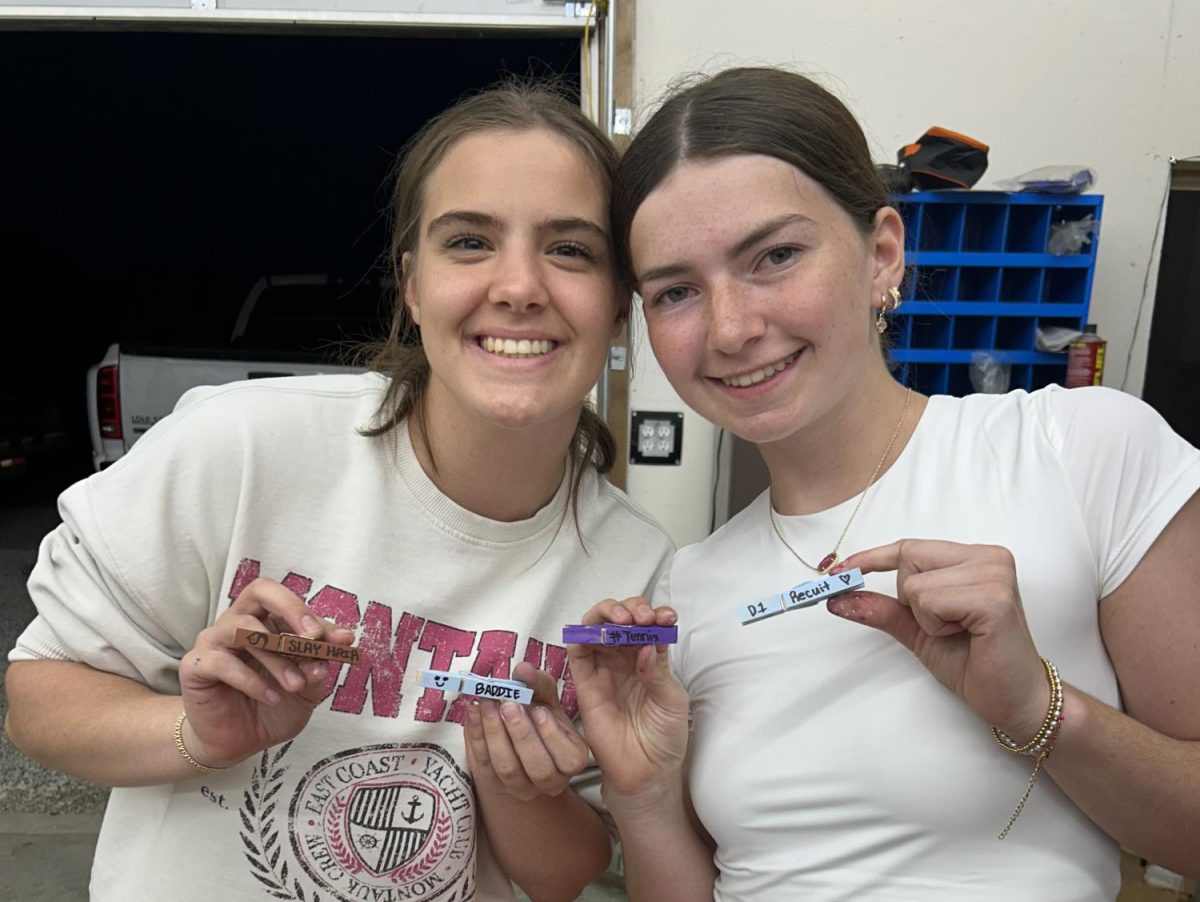To Grandma, with Love
Sophomore Sydney Sanny gives back to her grandma after she suffers a stroke.
Sydney and Grandma Anna pose for a selfie at one of their weekly visits. At their visits, they chat and work on different skills.
November 12, 2018
While a stroke can happen to anyone, not everyone will recognize the symptoms: droopage in facial features, arm weakness, and slurred speech–and act to prevent the condition from worsening. And it takes a special person to step in and assist with the rehabilitation process.
Sophomore Sydney Sanny visited her grandma–Anna–after hanging out with some friends one evening. Sanny’s brother informed her that her grandma was “acting weird,” but she didn’t think much of it until the next morning, when Anna’s condition had not let up, and it became more present there was something wrong.
“She started to talk, but her words were all over the place,” Sanny said on the moment of realization. Sanny knew her grandma needed medical attention. In a rush, she gathered all of Anna’s important information–her social security card and insurance card–and took her to the emergency room. She was also tasked with answering all of the nurse’s questions about Anna’s condition and medical history. Sanny did all of this by herself, with no adult present to assist her.
Soon after, Sanny’s mom arrived, and Anna was transferred from Cass County Memorial Hospital to the University of Nebraska Medical Center. She stayed there for a little over a week. Sanny made the 60 mile drive every day while her grandma was at UNMC.
The doctors concluded Anna had had a stroke, and suffered seven “dead spots” from it. Normally, stroke victims have one dead spot in the brain, which affects certain abilities along the physical and cognitive areas. Due to all the dead spots, Sanny and her mom were frightened of some of the stroke’s effects. “We were afraid she was going to be paralyzed,” Sanny said.
After she was released from the hospital, Sanny’s grandma made the transition to a nursing home, where she received care for both her symptoms, as well as with her daily activities.
Anna’s speech was severely influenced by the stroke. Her speech is now slurred and includes a lot of rambling. However, this doesn’t stop Sanny from having conversations with her. “Even if it is slurred, I can kind of decipher what she means,” she said. Also, Anna has trouble seeing, as the dead spots have altered her vision. Physically, Anna is able to do everything just as she had pre-stroke.
However, reading and writing are a struggle for Sanny’s grandma. “She can do her signature perfect,” Sanny said, but writing in print is tough. Unfortunately, this is the only way the nursing home teaches writing.
After Sanny’s parents divorced, she and her mom lived with her grandma for the majority of her childhood. “I was the favorite,” Sanny admitted. Her grandma showed her favoritism, too. “She would get me anything I wanted, when I wanted it.”
Because Sanny’s grandma had given her so much throughout her lifetime, Sanny was passionate about giving back to her grandma. Thus, she took a role in helping her grandma with her daily tasks, as well as reteaching some of the skills inhibited by the stroke.
Sanny bought a poster board and wrote the numbers one through 20 on it, the size of plastic cups. On the cups, she also inscribed these numbers. With this handy tool, Anna could work on matching the cups with the correct number on the poster board. This activity helps promote the relearning of numbers, and helps stimulate the affected cognitive portion of the brain.
Also, Sanny spends time reading with her grandma. “Sometimes when we are reading, she’ll mess up, and she’ll realize it.”
At the start, Sanny would go to the nursing home every day to assist her grandma, but now goes once a week due to her busy schedule. Still, the pair talk on the phone every night.
Things came full circle for Sanny when she took Anna to a doctor’s appointment for her thyroid. After the appointment, they went out to eat and Anna said “thank you.” At first Sanny was confused, but Anna went on to say “You’re the only reason I’m alive.”
Sanny and her mom are hoping to move Anna from her current residence to Avoca where she can “have therapy, as well as independence.” For now, Anna is comfortable, as Sanny and her mom gifted her a new TV and some bluetooth headphones.
“She has already had a drastic change from where she was at,” Sanny said. She plans to keep up her weekly visits even if her grandma relocates because “she means so much more to me than anyone else.”











Palmer Hoegh • Nov 12, 2018 at 10:38 pm
This is a wonderful story. Thank you for sharing such a beautiful example of love.